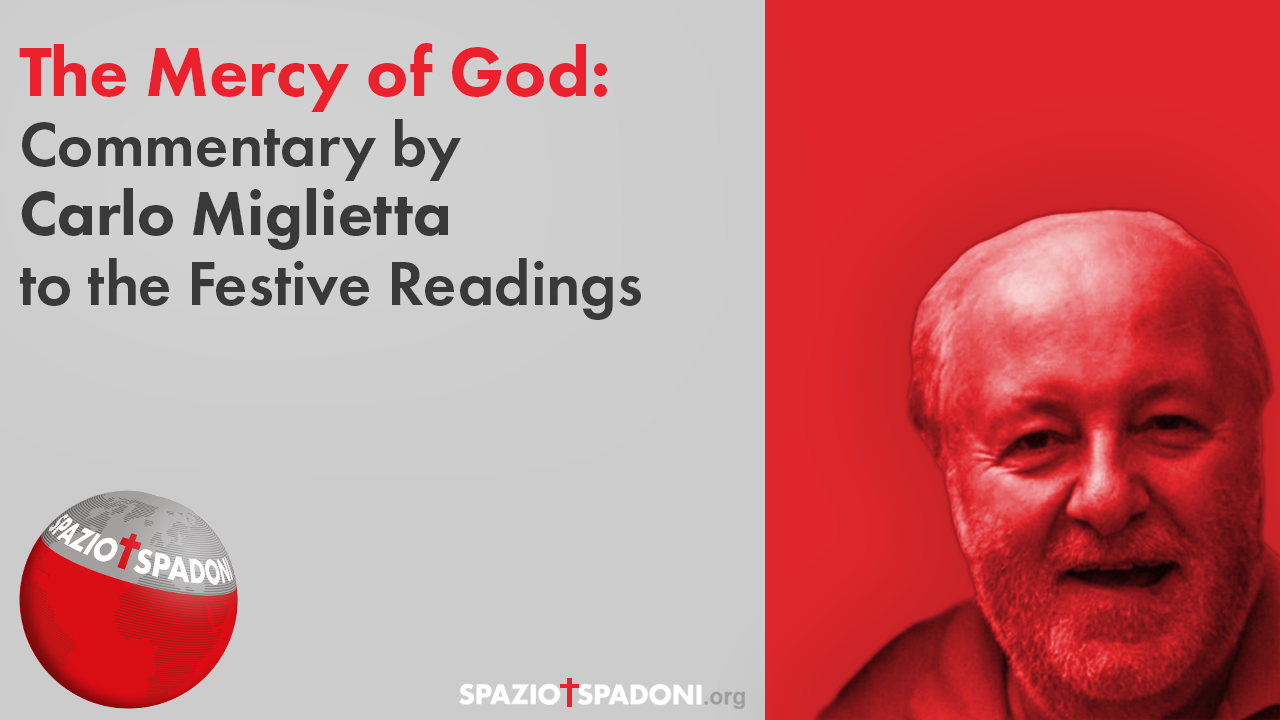
IV Sunday Of Lent B – Jesus, The Ultimate Prophet Of God
Readings: Deut. 18:15-20; 1 Cor. 7:32-35; Mk. 1:21-28
Loving God with an undivided heart
The liturgy continues to present us with the reading from the first letter to the Corinthians. Today’s passage must be framed within the whole of chapter 7 of this letter, where Paul speaks of the marriage vocation and the celibate vocation, defining both as gifts and callings from the Lord: “Each receives from God his own gift, some in one way, some in another” (v. 7). Certain of his positions on the preference of celibacy undoubtedly stem from his personal history. We know that when he was writing to the Corinthians he was not attached to any woman. It is less likely that he had never been married, for marriage was an obligation for every pious Israelite. Perhaps he was a widower; or perhaps he had been left by his wife; for others he was married to a Jewess who had not converted and lived apart from her; for still others his wife and children had died to him in a misfortune in Jerusalem. Perhaps he had abandoned wife and home to give himself to evangelism (1 Cor. 9:4-6). In any case he feels marriage as a burden in his quest for fellowship with the Lord (1 Cor 7:32-34).
But the challenge for all, celibate and married and as we have already seen last Sunday, to love God with an undivided heart, putting Him first, both in celibate and married life. The criterion for discernment, Paul tells us, will be to listen to one’s psyche, one’s emotions, one’s physical and psychological history: “This I tell you not to cast a snare over you” (v. 35).
“And the Word became flesh” (Jn. 1:14)
The First Reading and the Gospel refer to and complement each other. In the Deuteronomy passage God promises that he will always accompany his people with prophets, and in the Gospel the last, final prophet, the Lord Jesus, is presented.
The prophet is not the one who predicts or unveils a future event. He is an intermediary with the Absolute, a faithful bearer of God’s word. Prophethood condemns outward worship, the arrogance of the powerful and rulers; it calls for the radicality of following the divine will. The prophet is constituted by God “to uproot and demolish, to destroy and tear down, to build up and plant” (Jer. 1:10). That is why his impact with the people is more often a confrontation than an encounter.
Jesus is presented in the Gospel not only as the one who historically closes the series of ancient prophets, but as the one who brings the promises to fulfillment, the one in whom God’s plan for humanity is revealed and fulfilled. He does not merely, like the scribes and Pharisees, repeat and recall God’s word; he “teaches as one in authority” and accompanies his words with the power of miracles. The healing of the possessed man becomes a prophetic sign of a liberation in progress, of the coming of the kingdom of God, of the beginning of the new people.
Prophets and prophetic communities in the Church
Do prophets still exist today? Do we know how to recognize them? Or do they bother us and do we persecute them? Prophetic denunciation is not the initiative of the Church but of the Holy Spirit. Prophets are encountered where we least and when we least expect them. The Spirit also raises prophets beyond the sociological boundaries of the Church. Every man, every human community can become prophecy.
“There is not only prophecy within the Church, but the Christian community itself is “prophecy” to the whole human community: a source of critique against every absolutization, or dehumanizing ideology, or oppressive power. Denunciation of racism, economic exploitation, disrespect for life. All this presupposes a community in continuous verification of its fidelity to the message, so that its prophecy is not alienating counter-witness” (Salesian Catechetical Center).
The Church, people of prophets
But each of us by baptism is called to be a prophet, to carry the Word of God around us, to those areas where sometimes it would never reach if we did not carry it. Each of us is to witness by life and word to God’s love and tenderness for the world, and that only in God is there salvation, that is, the meaning of living and dying, and the certainty of the victory of good over evil, of love over hate, of life over death.
Sometimes this proclamation is opposed and vilified, and prophets are persecuted. But “Blessed are those persecuted for righteousness’ sake, for theirs is the kingdom of heaven” (Mt. 5:10).
